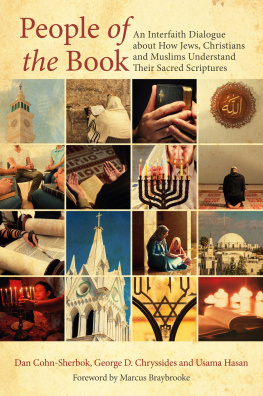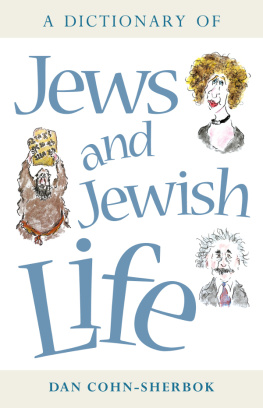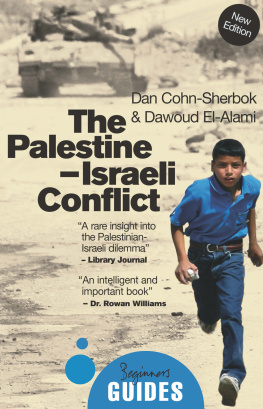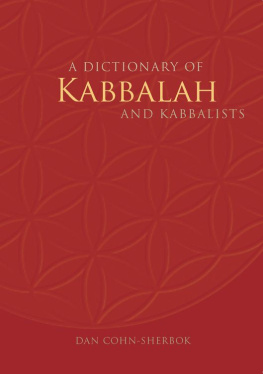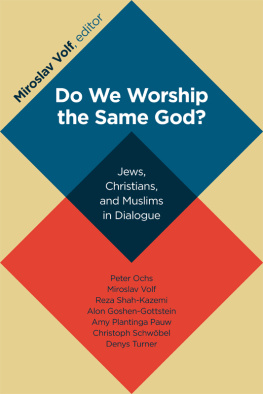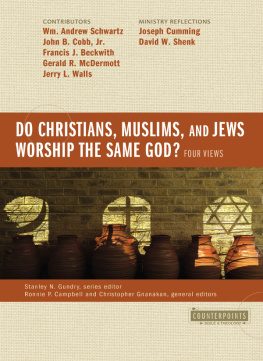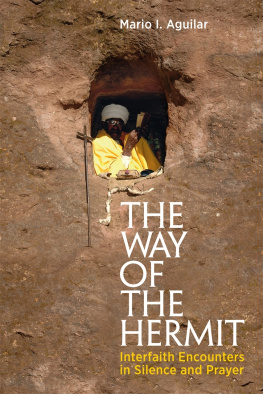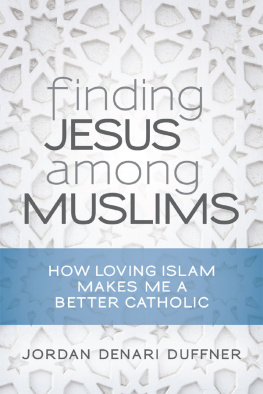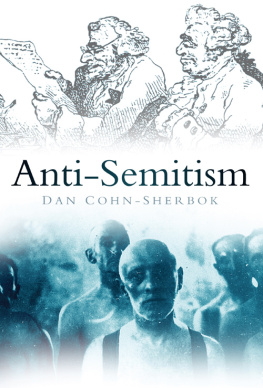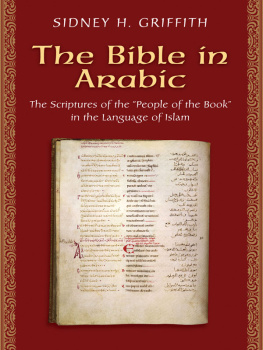Dan Cohn-Sherbok - People of the Book: An Interfaith Dialogue about How Jews, Christians and Muslims Understand Their Sacred Scriptures
Here you can read online Dan Cohn-Sherbok - People of the Book: An Interfaith Dialogue about How Jews, Christians and Muslims Understand Their Sacred Scriptures full text of the book (entire story) in english for free. Download pdf and epub, get meaning, cover and reviews about this ebook. year: 2018, publisher: Jessica Kingsley Publishers, genre: Religion. Description of the work, (preface) as well as reviews are available. Best literature library LitArk.com created for fans of good reading and offers a wide selection of genres:
Romance novel
Science fiction
Adventure
Detective
Science
History
Home and family
Prose
Art
Politics
Computer
Non-fiction
Religion
Business
Children
Humor
Choose a favorite category and find really read worthwhile books. Enjoy immersion in the world of imagination, feel the emotions of the characters or learn something new for yourself, make an fascinating discovery.
- Book:People of the Book: An Interfaith Dialogue about How Jews, Christians and Muslims Understand Their Sacred Scriptures
- Author:
- Publisher:Jessica Kingsley Publishers
- Genre:
- Year:2018
- Rating:3 / 5
- Favourites:Add to favourites
- Your mark:
- 60
- 1
- 2
- 3
- 4
- 5
People of the Book: An Interfaith Dialogue about How Jews, Christians and Muslims Understand Their Sacred Scriptures: summary, description and annotation
We offer to read an annotation, description, summary or preface (depends on what the author of the book "People of the Book: An Interfaith Dialogue about How Jews, Christians and Muslims Understand Their Sacred Scriptures" wrote himself). If you haven't found the necessary information about the book — write in the comments, we will try to find it.
Dan Cohn-Sherbok: author's other books
Who wrote People of the Book: An Interfaith Dialogue about How Jews, Christians and Muslims Understand Their Sacred Scriptures? Find out the surname, the name of the author of the book and a list of all author's works by series.
People of the Book: An Interfaith Dialogue about How Jews, Christians and Muslims Understand Their Sacred Scriptures — read online for free the complete book (whole text) full work
Below is the text of the book, divided by pages. System saving the place of the last page read, allows you to conveniently read the book "People of the Book: An Interfaith Dialogue about How Jews, Christians and Muslims Understand Their Sacred Scriptures" online for free, without having to search again every time where you left off. Put a bookmark, and you can go to the page where you finished reading at any time.
Font size:
Interval:
Bookmark:

PEOPLE
OF THE BOOK
An Interfaith Dialogue about How Jews, Christians
and Muslims Understand Their Sacred Scriptures
DAN COHN-SHERBOK,
GEORGE D. CHRYSSIDES
AND USAMA HASAN
FOREWORD BY MARCUS BRAYBROOKE

Contents
Foreword
This book is particularly important at a time when isolated verses from holy books are used to justify violence or suppress human rights. I hope it encourages the faithful to read their scriptures for themselves rather than relying on what preachers say. It may even come as a surprise that the Word of God is transmitted to us through human beings and that the Creeds too did not drop down from heaven, but were composed by church leaders. An added bonus is that besides fresh insights into their own scriptures, the reader will learn something about the beliefs of other People of the Book as the three authors Dan Cohn-Sherbok (Jewish), George D. Chryssides (Christian) and Usama Hasan (Muslim) share information and opinions. This they do, both concisely and honestly.
Besides explaining how we come to have Holy Books and the authority given to them, the authors explain what the scriptures say on key subjects such as the Creation of the World by God, Marriage and the Family, War and Peace, and Life after Death. They make clear the different interpretations within a faith community and, refreshingly, also tell us their personal interpretations and spiritual practices. They also speculate on the possible conflicts between future discoveries of space exploration and our old religious beliefs. Would extra-terrestrial beings, who obviously were not descended from Adam and Eve, be tainted with original sin? Maybe, as the poet Alice Meynell suggested, this would add a new dimension to interfaith dialogue as we compare togethera million alien Gospels. As it is too few Jews, Christians and Muslims have read each others scriptures let alone the Upanishads.
There is a traditional Muslim teaching (hadith) in which God says, When someone recites or reads the Quran, that person is, as it were, entering into conversation with me and I into conversation with him or her. Scriptures have also been called love-letters from God. May this book help us to listen more attentively and as we listen to recognise that the God who assures us of divine love has the same love for other people, even if it is expressed in different texts and languages.
Marcus Braybrooke
Revd Dr Marcus Braybrooke,
Joint-President of the World Congress of Faiths
About the Authors
DAN COHN-SHERBOK
My great-grandfathers were immigrants to the US from Hungary at the end of the nineteenth century. Initially the family lived on the East side of New York City. One of my grandfathers was a kosher butcher, and I have a photograph of him standing in front of his shop. After my maternal grandmother married my grandfather, who worked initially as a cigar-roller, they moved to Denver, Colorado. He worked there as a clothing salesman, and the family belonged to a modern Orthodox synagogue. My father, an orthopaedic surgeon, came to do medical research at the National Jewish Hospital in Denver, and met and married my mother. They joined a large Reform Jewish temple where I had a bar mitzvah and was confirmed. I went to a typical American high school, and then studied philosophy at a small, all-male, liberal arts college, Williams College, in Massachusetts.
From a young age I wanted to be a Reform rabbi, and subsequently I was a student at the Hebrew Union College-Jewish Institute of Religion, the largest Reform seminary in the world. During the five years I was there I studied biblical and rabbinic Hebrew, Aramaic, the Hebrew Bible, midrash , Mishnah, the Talmud as well as other related subjects. I also served small congregations as a student rabbi in Jasper, Alabama; Galesburg, Illinois; Harrisburg, Pennsylvania; Boulder, Colorado; and Denver, Colorado. After ordination I was a rabbi in Melbourne, Australia before embarking on a PhD at Cambridge University. During these years I also served as a rabbi at West London Synagogue, and in Johannesburg, South Africa.
These rabbinic experiences, however, convinced me that I am more suited to academic life, and in 1975 I became a lecturer in theology at the University of Kent; subsequently I became Professor of Judaism at the University of Wales, where I am now an Emeritus Professor. Over the years I became increasingly interested in interfaith encounter and dialogue, and I have written a number of books dealing with this subject, including Judaism and Other Faiths . I also edited several books concerned with world religions, including Islam in a World of Diverse Faiths , and World Religions and Human Liberation .
Judaism has always been central in my life. In this connection I should say something about the notion of Jewish identity. Unlike Christianity and Islam, Jewishness is determined not primarily by belief but by ethnic descent (although it is also possible to convert to the Jewish faith). According to tradition, a person is Jewish if that individuals mother is Jewish in other words, Jewish identity is based on maternal descent. In modern times, various branches of non-Orthodox Judaism have redefined this criterion to include patrilineal descent as well. Yet, even with such flexibility, Jewishness is perceived as a form of inherited ethnic identification. Ever since I was a child, I have seen myself as Jewish in this sense. In addition, I am loyal to Reform Judaism. From its origins in the nineteenth century, this branch of the faith which is the largest worldwide has championed prophetic ideals as found in Scripture and is also open to change and development based on modern knowledge. It is, I believe, the most reasonable and sensible form of Judaism ideally suited to the modern world. As far as Christianity and Islam are concerned, although I admire Jesus and Muhammads moral teachings, I disagree with the theology of both religions. I do not believe that Jesus is God incarnate, nor that the Quran is Gods revelation to Muhammad.
GEORGE CHRYSSIDES
I cant remember ever not knowing the Bibles stories. When my brother and I were children, our mother always read a Bible passage to us at night, and we were expected to attend church and Sunday School regularly. Having been born in Glasgow, we belonged to the Church of Scotland.
In my early teens I remember a minister preaching a sermon about Ezekiel and the dry bones. I hadnt heard the story before it was quite scary, but it made me realise that there was much more in the Bible than the stories of Jesus and the Old Testament tales of Abraham and Isaac, Joseph and his dreamcoat, and the Israelites journey to the Promised Land.
In my later teens I went away on a church mission with some other young people in my congregation. One evening a local minister spoke to us about the Bible, and urged us to get to know it better by reading a chapter a day, until we had read it in full. I took up the challenge, and systematically read a chapter sometimes more daily, with the help of The New Bible Commentary . My home congregation was quite conservative theologically; the minister was a fundamentalist Christian, and this commentary was much favoured in such circles for its fundamentalist leanings.
I later came across a book in the Teach Yourself Series (now out of print) called A Guidebook to the Bible by Alice Parmelee. This book opened my eyes to more liberal biblical scholarship, introducing me to theories of multiple authorship of the books attributed to Moses, the synoptic problem, biblical poetry, prophecy and biblical history, which put all my childhood stories into proper perspective.
Next pageFont size:
Interval:
Bookmark:
Similar books «People of the Book: An Interfaith Dialogue about How Jews, Christians and Muslims Understand Their Sacred Scriptures»
Look at similar books to People of the Book: An Interfaith Dialogue about How Jews, Christians and Muslims Understand Their Sacred Scriptures. We have selected literature similar in name and meaning in the hope of providing readers with more options to find new, interesting, not yet read works.
Discussion, reviews of the book People of the Book: An Interfaith Dialogue about How Jews, Christians and Muslims Understand Their Sacred Scriptures and just readers' own opinions. Leave your comments, write what you think about the work, its meaning or the main characters. Specify what exactly you liked and what you didn't like, and why you think so.

